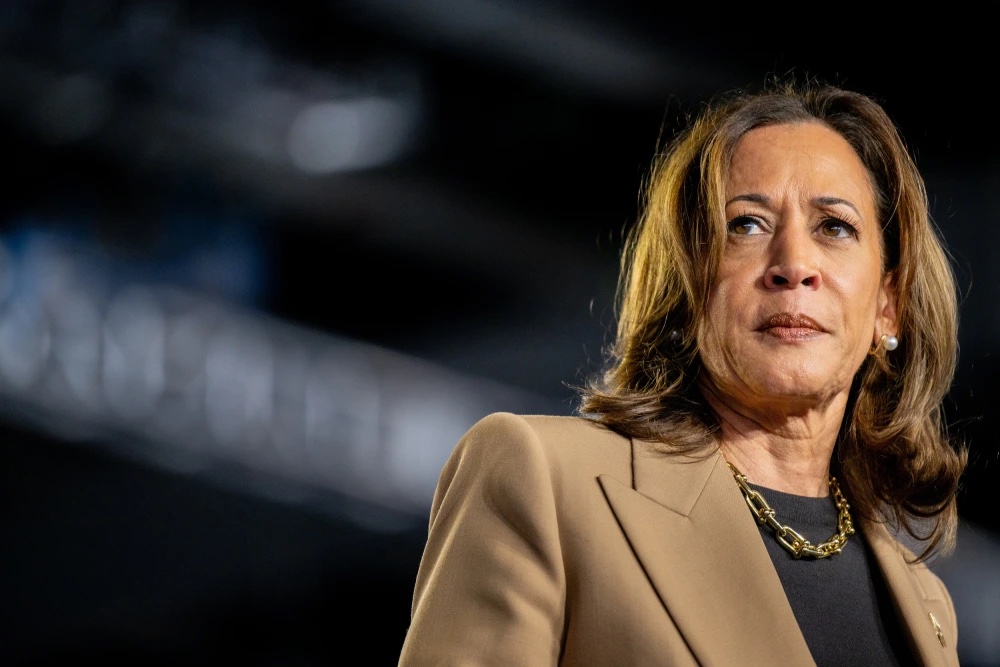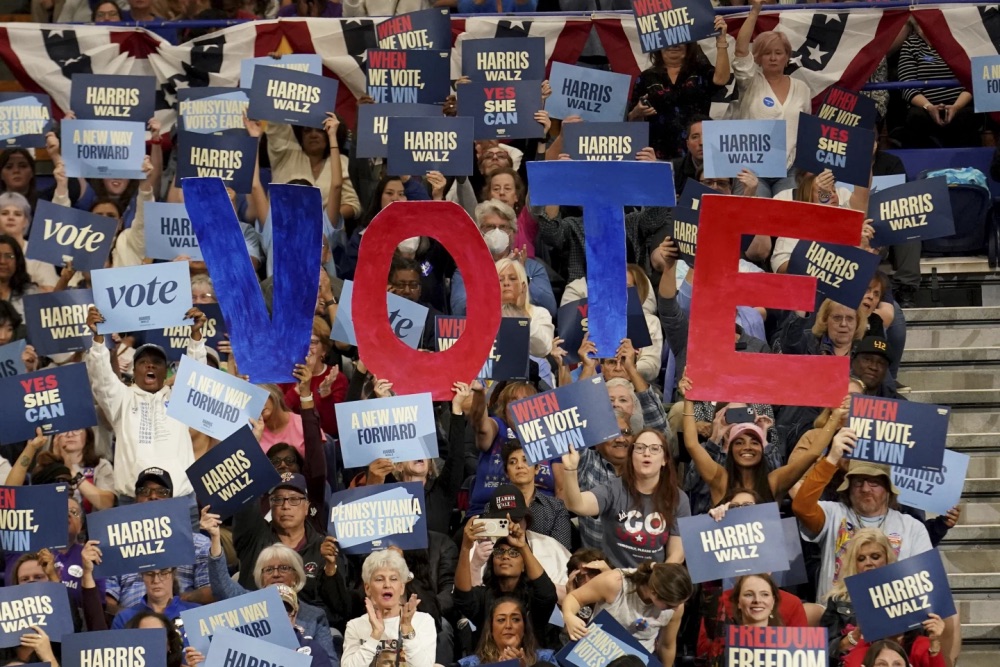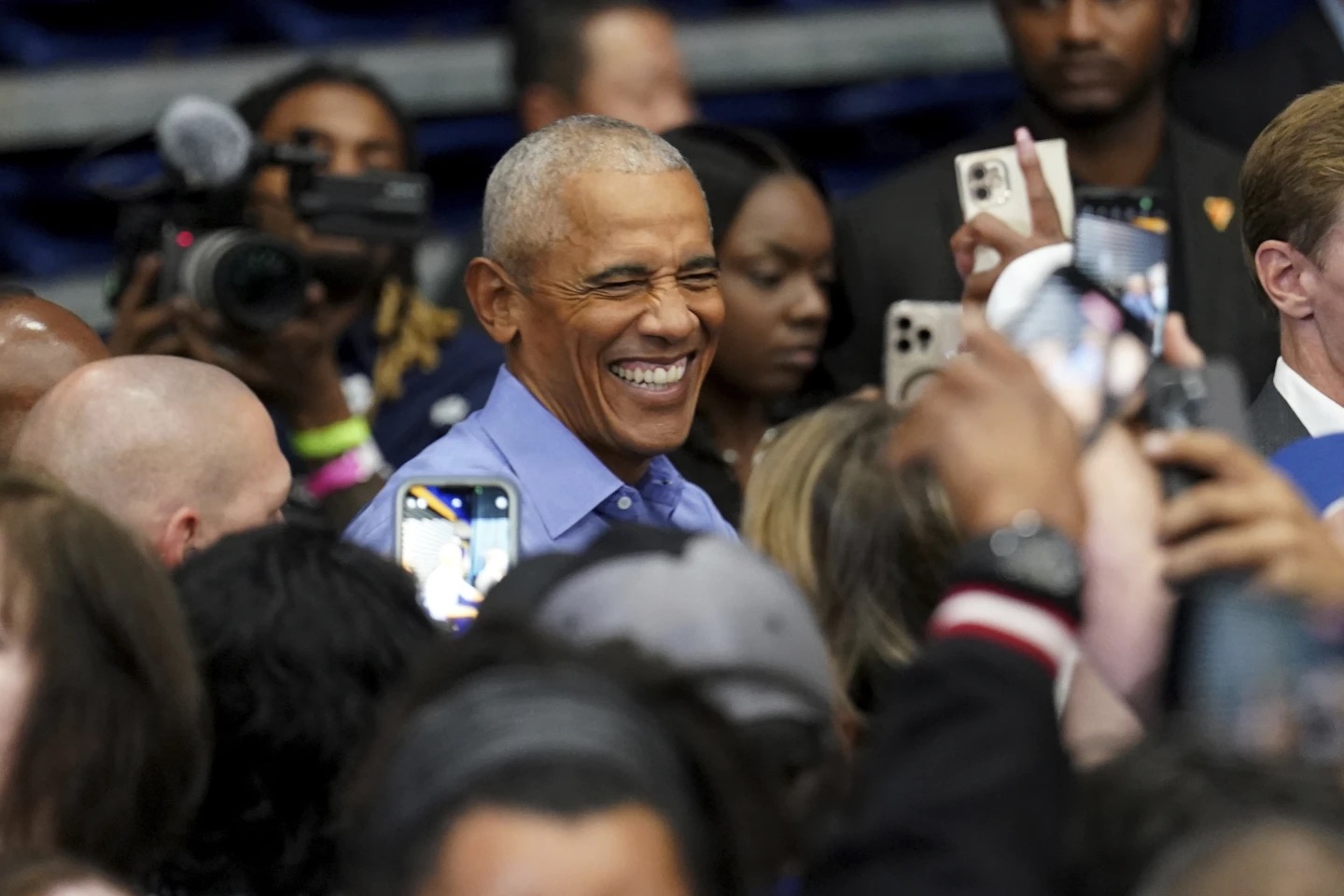PITTSBURGH, USA — Former US President Barack Obama addressed concerns about voter turnout among Black men urging them to support Vice President Kamala Harris in her tight election race against Republican Donald Trump.
Speaking at a Harris-Walz campaign event in Pittsburgh on Thursday, October 10, 2024, Obama suggested that hesitation to back Harris may reflect discomfort with the idea of a female president.
“Part of it makes me think that, well, you just aren’t feeling the idea of having a woman as president, and you’re coming up with other alternatives and other reasons for that,” Obama said to volunteers at a campaign field office.
Harris, who aims to become the second Black president and the first woman to hold the office, is heavily relying on Black voter turnout in battleground states like Pennsylvania.
Her campaign sees support from Black men as critical in countering Trump’s appeal to male voters across racial lines.

Efforts to Bolster Support
While polling shows that Harris retains strong backing from Black voters, with about seven in ten viewing her favourably according to a recent survey by The Associated Press-NORC Center for Public Affairs Research, her campaign has intensified outreach efforts to shore up enthusiasm.
Khalil Thompson, co-founder of Win With Black Men, acknowledged Obama’s comments about the challenges of gender dynamics in the race.
“Calling out misogyny is not wrong,” Thompson said, noting that his group raised over $1.3 million from Black men for Harris shortly after President Biden announced in July that he would not seek re-election.
Win With Black Men has organized weekly events and calls to emphasize Harris’ policy priorities and counter misinformation.
The group has focused on economic opportunities, social justice, public safety, and health care — issues Thompson said resonate strongly with Black men.
“We’re not a monolith,” Thompson said. “We want what every American wants — good jobs, safe communities, and the ability to provide for our families.”
Harris, for her part, emphasised the need to earn Black men’s votes.
“Black men are not in our back pocket,” she said during a National Association of Black Journalists panel in September.
To engage directly with voters, Harris has appeared on platforms such as the “All The Smoke” podcast and will participate in a live conversation with media personality Charlamagne tha God in Detroit next week.

Trump’s Push for Black Male Support
Trump’s campaign has also ramped up efforts to attract Black male voters, holding roundtables and cookouts in swing-state cities like Baltimore and Philadelphia.
The former president has framed his legal troubles, which include multiple criminal indictments, as a source of connection with marginalized communities.
“A lot of people said that’s why the Black people like me, because they have been hurt so badly and discriminated against, and they actually viewed me as I’m being discriminated against,” Trump said to a conservative audience in South Carolina.
Trump allies, including the campaign’s Black Men for Trump advisory board, criticized Obama’s remarks as dismissive.
In a statement co-signed by Rep. Byron Donalds, R-Fla., and former Detroit Mayor Kwame Kilpatrick, the group called Obama’s comments “insulting” and accused Harris of neglecting Black communities during her political career.

Navigating Voter Engagement
The Harris campaign is navigating gender dynamics that could shape the election, with Trump polling better among men and Harris stronger among women. Philip Agnew, founder of Black Men Build, argued that voter hesitation among Black men reflects frustration with politics, rather than misogyny.
“To be a Black man in the United States is to be invisible and hypervisible at the same time,” Agnew said. His organization has hosted roundtable discussions to foster civic engagement and encourage progressive political involvement among Black men.
“The Black men I know are deeply concerned with their families and communities,” Agnew added. “It’s out of love for our sisters, not a lack of it, that we ask questions.”
As both campaigns escalate their outreach efforts, the battle for Black male voters could prove decisive in what is shaping up to be one of the closest presidential races in recent history.







